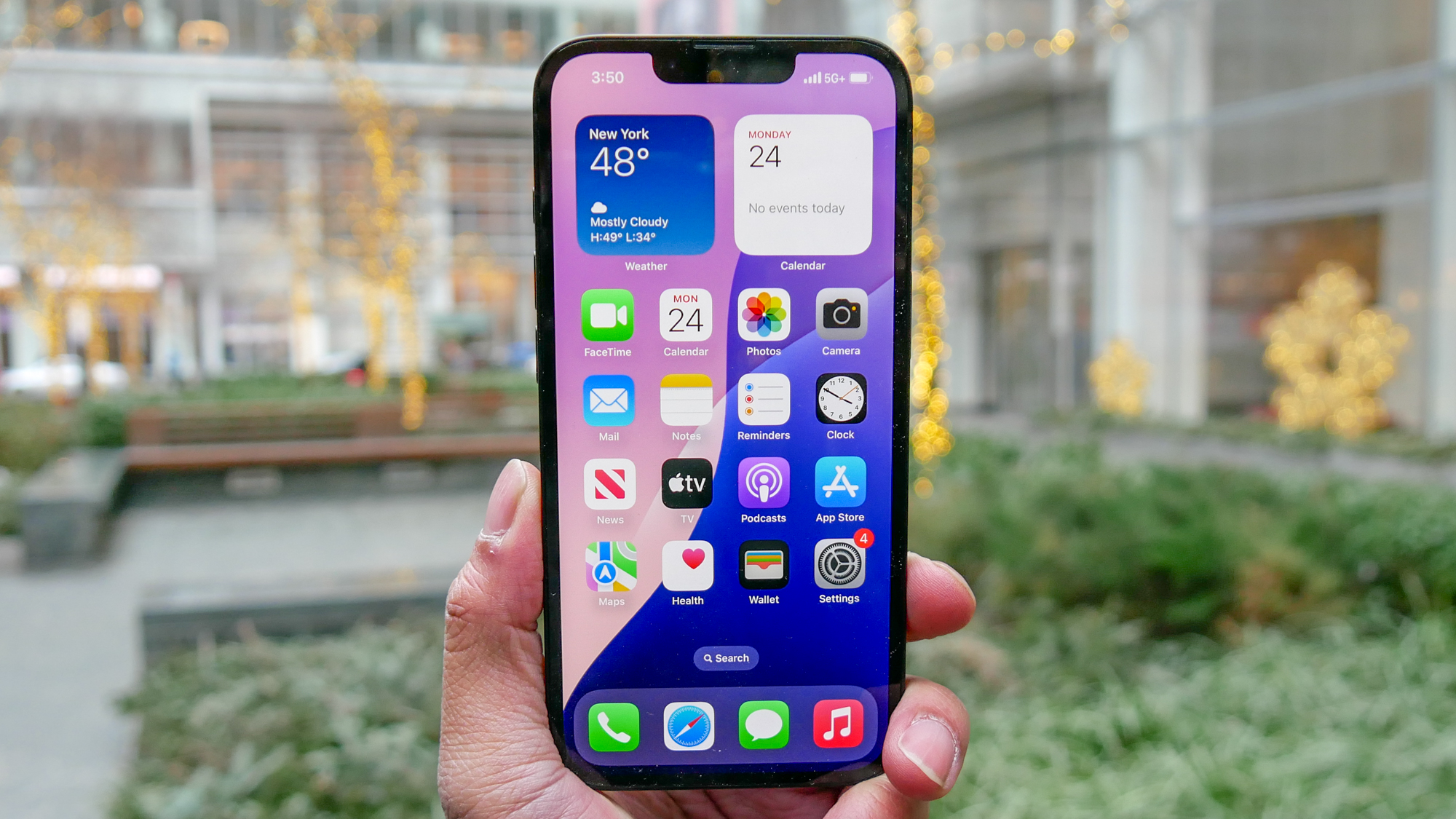Tim Cook defends Siri during Apple earnings call — ‘we need more time’
The Apple Intelligence revamp is 'taking a bit longer than we thought'

During a call with Wall Street analysts today (May 1), Apple CO Tim Cook tackled one of the company's biggest setbacks in recent memory — its inability to deliver a smarter version of Siri as part of the Apple Intelligence rollout.
Last June, Apple outlined its plans to introduce more features powered by artificial intelligence across its phones, tablets and computers. Included in these Apple Intelligence tools was a new version of Siri that promised more conversational and context-aware.
Nearly a year after that preview, though, Siri has only seen a few modest changes, like a new interface, the ability to answer follow-up questions and a Type to Siri feature. The more substantial overhaul will have to wait until iOS 19, which isn't set to arrive until later this year.
"With regard to the more personal Siri features we announced, we need more time to complete our work on these features so they meet our high-quality bar," Cook said to analysts as part of his review of Apple's financial performance for the three months ended March 29. "We are making progress, and we look forward to getting these features into customers hands."
"We are making progress, and we look forward to getting these features into customers hands."
— Tim Cook
Apple's acknowledged the delay before. Back in March, the company put out a statement conceding that the Siri 2.0 features were taking longer than it had anticipated. Still, it's quite noteworthy to have Apple's CEO directly address the setback.
Asked by an analyst what factors might have contributed to delay, Cook declined to pinpoint any particular reason. "It’s just taking a bit longer than we thought," Cook said.
That explanation seems at odds with some of the rumored moves coming out of Cupertino, where Apple is said to be reorganizing management of the Siri revamp efforts. Those reports didn't come up during the analyst call, though Apple chief financial officer Kevan Parekh did dismiss any suggestions that Apple didn't spend enough on developing the tools used for Apple Intelligence.
Get instant access to breaking news, the hottest reviews, great deals and helpful tips.
"We’re continuing to grow our R&D investment, and so we definitely are making all the investments we think we need to enable our roadmap," Parekh said.
Apple revenue growth

During Apple's last earnings call in which the company detailed its performance during the holiday quarter, Cook suggested that markets where Apple Intelligence had become available saw a greater demand for the iPhone 16 models. There was no update on that for this quarter. While Apple Intelligence has expanded to more countries to additional language support arriving in the iOS 18.4 update, that software didn't land until April — too late to influence March quarter sales for the iPhone.
Apple did sell more phones year-over-year from January to March, thanks in part to the launch of the iPhone 16e. Phone revenues rose a modest a modest 2% from year-ago quarter to $46.8 billion.
Overall sales were up 5% year-over-year to $95.4 billion, with double-digit gains in revenue from services and iPads helping Apple's bottom line.
Apple has come in for a lot of criticism for its Apple Intelligence launch — including from me — but during the call with analysts, Cook struck a largely positive tone, even in light of the delay to Siri's new features.
"If you sort of step back from what we said at WWDC, we talked about a number of different features that would launch with iOS 18, and we’ve released a slew of those, from Writing Tools to seamlessly connecting to ChatGPT, to Genmoji, to Image Playground, to Image Wand, to Clean Up, Visual Intelligence, making movies of your memories with a simple prompt, AI-powered photo search, smart replies, priority notifications, and the list goes on," Cook said.
Tariff talk
Siri talk only took up a small portion of the March quarter earnings call. Understandably, analysts were interested to hear Apple's guidance on the Trump administration's tariffs and what impact that might have on the company.
Apple only provided guidance for the June quarter, saying that barring any other changes to tariff policies — a big if in our current climate — it was an anticipating an additional $900 million in costs from the tariffs.
Because tariffs are levied on the country of origin, Apple has shifted a lot of its production away from China. Cook said that in the June quarter, the majority of iPhones sold in the U.S. will be sourced from India, with almost all iPads, Macs, Apple Watches and AirPods sold in the U.S. coming from Vietnam. The products made in China will be sold in other parts of the world.
Even with the added impact of tariffs, Apple expects to see its revenue grow for the three months between April and June. Parekh told analysts to look for low to mid single-digit growth over the $85.9 billion in sales posted last year.
More from Tom's Guide
- Apple's being ordered to change App Store rules by a U.S. Judge
- Here's why a U.S.-built iPhone will be hard to pull off
- I gave Memory Movies another try 6 months after Apple Intelligence arrived — here’s what I’ve found
Philip Michaels is a Managing Editor at Tom's Guide. He's been covering personal technology since 1999 and was in the building when Steve Jobs showed off the iPhone for the first time. He's been evaluating smartphones since that first iPhone debuted in 2007, and he's been following phone carriers and smartphone plans since 2015. He has strong opinions about Apple, the Oakland Athletics, old movies and proper butchery techniques. Follow him at @PhilipMichaels.
You must confirm your public display name before commenting
Please logout and then login again, you will then be prompted to enter your display name.
 Club Benefits
Club Benefits






